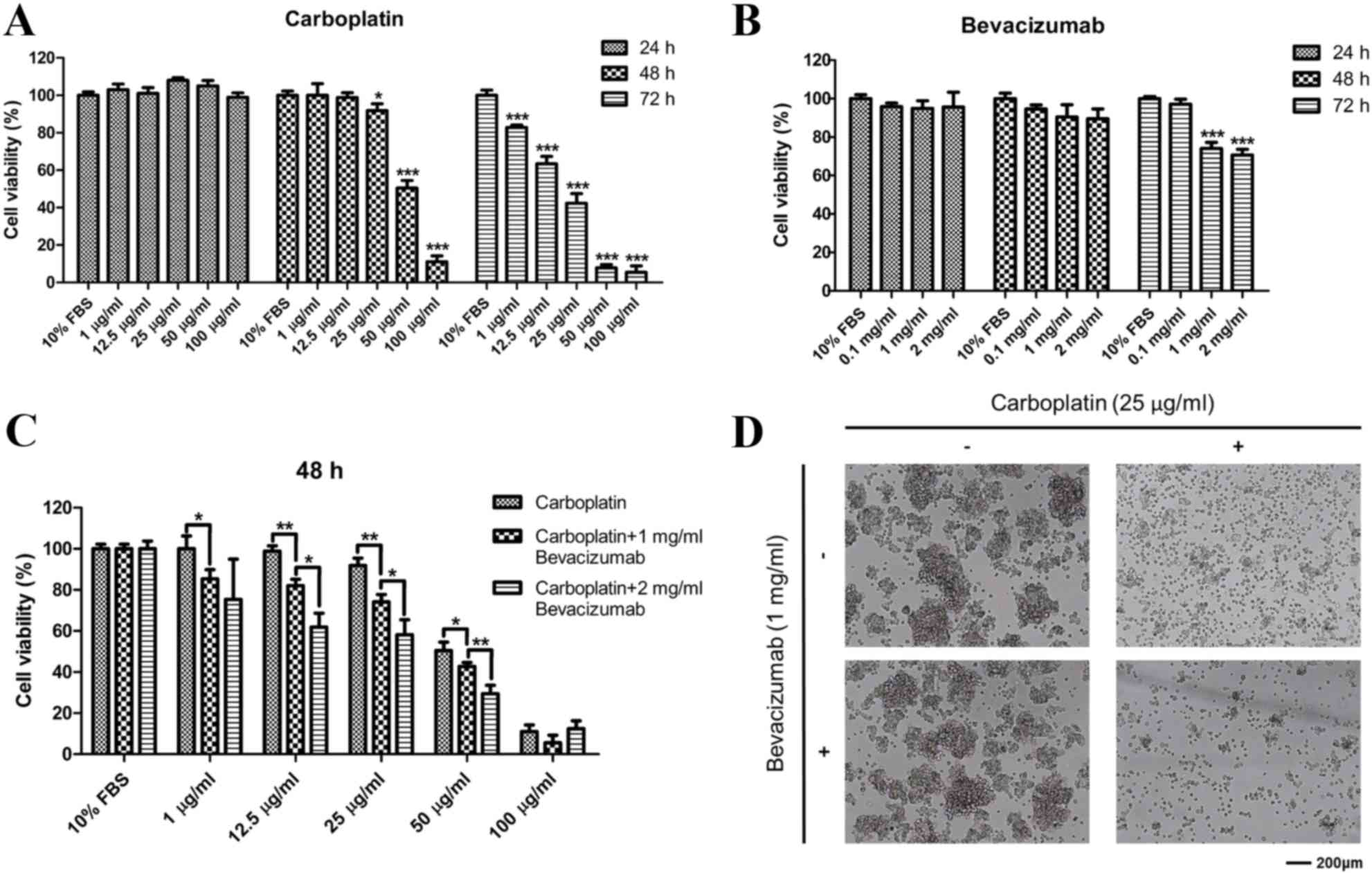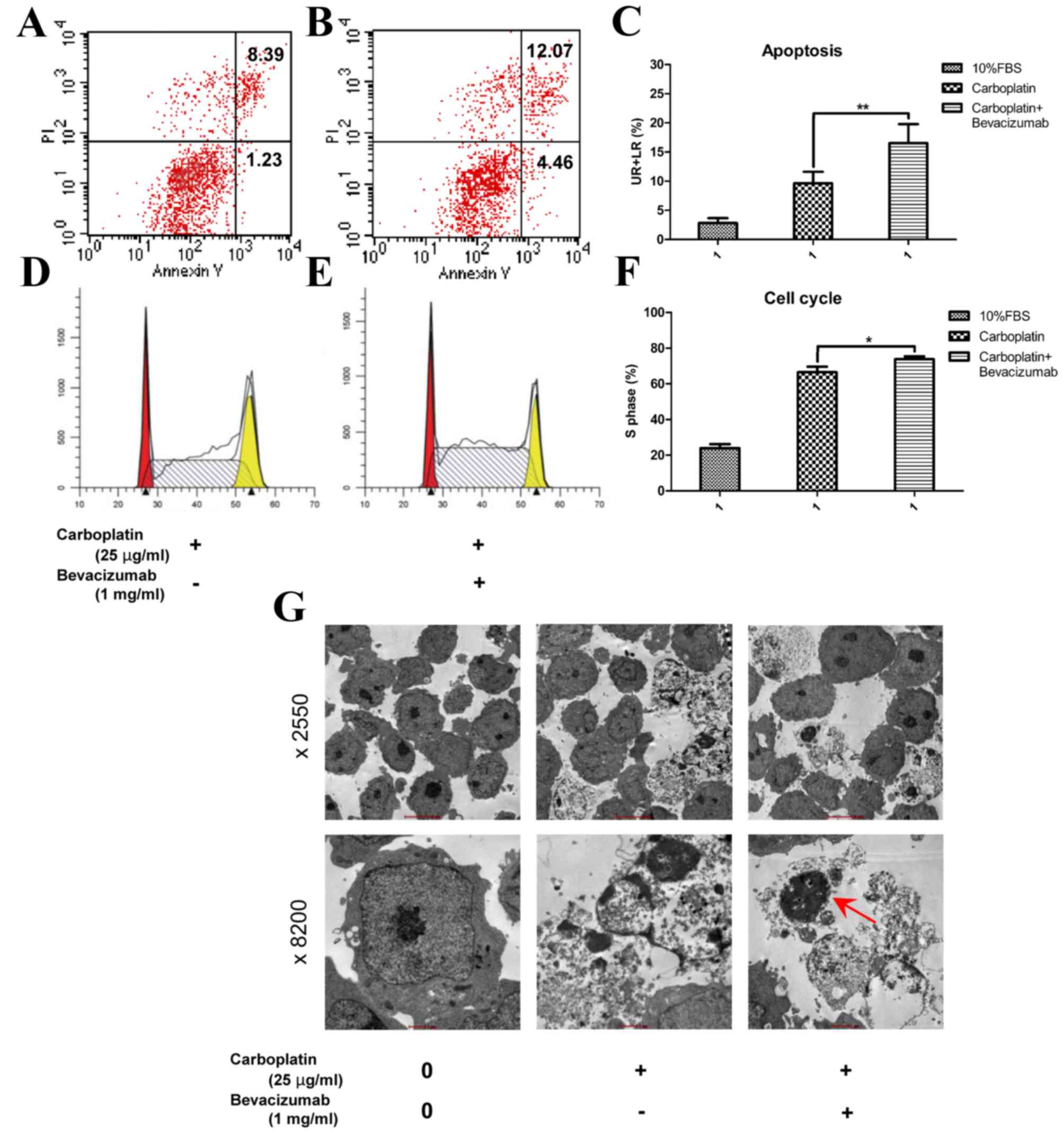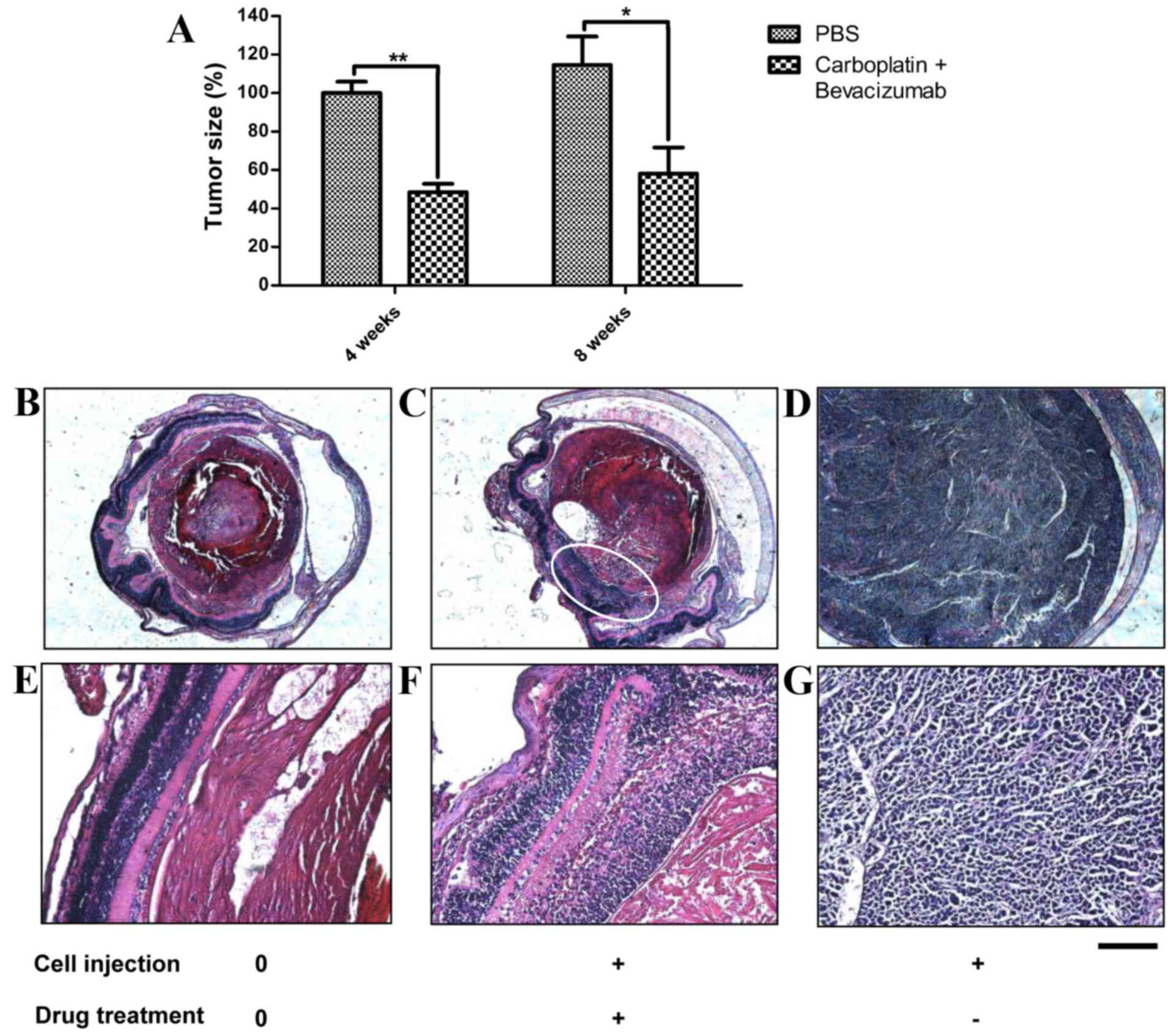|
1
|
Broaddus E, Topham A and Singh AD:
Incidence of retinoblastoma in the USA: 1975–2004. Br J Ophthalmol.
93:21–23. 2009. View Article : Google Scholar : PubMed/NCBI
|
|
2
|
Kivelä T: The epidemiological challenge of
the most frequent eye cancer: Retinoblastoma, an issue of birth and
death. Br J Ophthalmol. 93:1129–1131. 2009. View Article : Google Scholar : PubMed/NCBI
|
|
3
|
Seregard S, Lundell G, Svedberg H and
Kivelä T: Incidence of retinoblastoma from 1958 to 1998 in Northern
Europe: Advantages of birth cohort analysis. Ophthalmology.
111:1228–1232. 2004. View Article : Google Scholar : PubMed/NCBI
|
|
4
|
Chintagumpala M, Chevez-Barrios P, Paysse
EA, Plon SE and Hurwitz R: Retinoblastoma: Review of current
management. Oncologist. 12:1237–1246. 2007. View Article : Google Scholar : PubMed/NCBI
|
|
5
|
Shields CL, Mashayekhi A, Au AK, Czyz C,
Leahey A, Meadows AT and Shields JA: The International
classification of retinoblastoma predicts chemoreduction success.
Ophthalmology. 113:2276–2280. 2006. View Article : Google Scholar : PubMed/NCBI
|
|
6
|
Balmer A, Zografos L and Munier F:
Diagnosis and current management of retinoblastoma. Oncogene.
25:5341–5349. 2006. View Article : Google Scholar : PubMed/NCBI
|
|
7
|
Wheate NJ, Walker S, Craig GE and Oun R:
The status of platinum anticancer drugs in the clinic and in
clinical trials. Dalton Trans. 39:8113–8127. 2010. View Article : Google Scholar : PubMed/NCBI
|
|
8
|
Shields CL, Kaliki S, Rojanaporn D,
Al-Dahmash S, Bianciotto CG and Shields JA: Intravenous and
intra-arterial chemotherapy for retinoblastoma: What have we
learned? Curr Opin Ophthalmol. 23:202–209. 2012. View Article : Google Scholar : PubMed/NCBI
|
|
9
|
Harbour JW, Murray TG, Hamasaki D,
Cicciarelli N, Hernández E, Smith B, Windle J and O'Brien JM: Local
carboplatin therapy in transgenic murine retinoblastoma. Invest
Ophthalmol Vis Sci. 37:1892–1898. 1996.PubMed/NCBI
|
|
10
|
Murray TG, Roth DB, O'Brien JM, Feuer W,
Cicciarelli N, Markoe AM, Hernández E, Smith BJ and Windle JJ:
Local carboplatin and radiation therapy in the treatment of murine
transgenic retinoblastoma. Arch Ophthalmol. 114:1385–1389. 1996.
View Article : Google Scholar : PubMed/NCBI
|
|
11
|
Gombos DS, Kelly A, Coen PG, Kingston JE
and Hungerford JL: Retinoblastoma treated with primary chemotherapy
alone: The significance of tumour size, location, and age. Br J
Ophthalmol. 86:80–83. 2002. View Article : Google Scholar : PubMed/NCBI
|
|
12
|
Folkman J: Tumor angiogenesis: Therapeutic
implications. N Engl J Med. 285:1182–1186. 1971. View Article : Google Scholar : PubMed/NCBI
|
|
13
|
Shibuya M: VEGF-VEGFR signals in health
and disease. Biomol Ther (Seoul). 22:1–9. 2014. View Article : Google Scholar : PubMed/NCBI
|
|
14
|
Missotten GS, Schlingemann RO and Jager
MJ: Angiogenesis and vascular endothelial growth factors in
intraocular tumors. Dev Ophthalmol. 46:123–132. 2010. View Article : Google Scholar : PubMed/NCBI
|
|
15
|
Bevacizumab, . Anti-VEGF monoclonal
antibody, avastin, rhumab-VEGF. Drugs R D. 3:28–30. 2002.PubMed/NCBI
|
|
16
|
Bai YJ, Huang LZ, Xu XL, Du W, Zhou AY, Yu
WZ and Li XX: Polyethylene glycol-modified pigment
epithelial-derived factor: New prospects for treatment of retinal
neovascularization. J Pharmacol Exp Ther. 342:131–139. 2012.
View Article : Google Scholar : PubMed/NCBI
|
|
17
|
Reid TW, Albert DM, Rabson AS, Russell P,
Craft J, Chu EW, Tralka TS and Wilcox JL: Characteristics of an
established cell line of retinoblastoma. J Natl Cancer Inst.
53:347–360. 1974. View Article : Google Scholar : PubMed/NCBI
|
|
18
|
Areán C, Orellana ME, Abourbih D, Abreu C,
Pifano I and Burnier MN Jr: Expression of vascular endothelial
growth factor in retinoblastoma. Arch Ophthalmol. 128:223–229.
2010. View Article : Google Scholar : PubMed/NCBI
|
|
19
|
Youssef NS and Said AM:
Immunohistochemical expression of CD117 and vascular endothelial
growth factor in retinoblastoma: Possible targets of new therapies.
Int J Clin Exp Pathol. 7:5725–5737. 2014.PubMed/NCBI
|
|
20
|
Cheng Y, Zheng S, Pan CT, Yuan M, Chang L,
Yao Y, Zhao M and Liang J: Analysis of aqueous humor concentrations
of cytokines in retinoblastoma. PLoS One. 12:e01773372017.
View Article : Google Scholar : PubMed/NCBI
|
|
21
|
Lee SY, Kim DK, Cho JH, Koh JY and Yoon
YH: Inhibitory effect of bevacizumab on the angiogenesis and growth
of retinoblastoma. Arch Ophthalmol. 126:953–958. 2008. View Article : Google Scholar : PubMed/NCBI
|
|
22
|
Heo JW and Kim JH, Cho CS, Jun HO, Kim DH,
Yu YS and Kim JH: Inhibitory activity of bevacizumab to
differentiation of retinoblastoma cells. PloS one. 7:e334562012.
View Article : Google Scholar : PubMed/NCBI
|
|
23
|
Shilo A, Ben Hur V, Denichenko P, Stein I,
Pikarsky E, Rauch J, Kolch W, Zender L and Karni R: Splicing factor
hnRNP A2 activates the Ras-MAPK-ERK pathway by controlling A-Raf
splicing in hepatocellular carcinoma development. RNA. 20:505–515.
2014. View Article : Google Scholar : PubMed/NCBI
|
|
24
|
Hu Y, Yang H, Lu XQ, Xu F, Li J and Qian
J: ARHI suppresses pancreatic cancer by regulating MAPK/ERK 1/2
pathway. Pancreas. 44:342–343. 2015. View Article : Google Scholar : PubMed/NCBI
|
|
25
|
Georgakis GV and Younes A: From Rapa Nui
to rapamycin: Targeting PI3K/Akt/mTOR for cancer therapy. Expert
Rev Anticancer Ther. 6:131–140. 2006. View Article : Google Scholar : PubMed/NCBI
|
|
26
|
Kim KJ, Li B, Winer J, Armanini M, Gillett
N, Phillips HS and Ferrara N: Inhibition of vascular endothelial
growth factor-induced angiogenesis suppresses tumour growth in
vivo. Nature. 362:841–844. 1993. View
Article : Google Scholar : PubMed/NCBI
|
|
27
|
Mordenti J, Thomsen K, Licko V, Chen H,
Meng YG and Ferrara N: Efficacy and concentration-response of
murine anti-VEGF monoclonal antibody in tumor-bearing mice and
extrapolation to humans. Toxicol Pathol. 27:14–21. 1999. View Article : Google Scholar : PubMed/NCBI
|


















